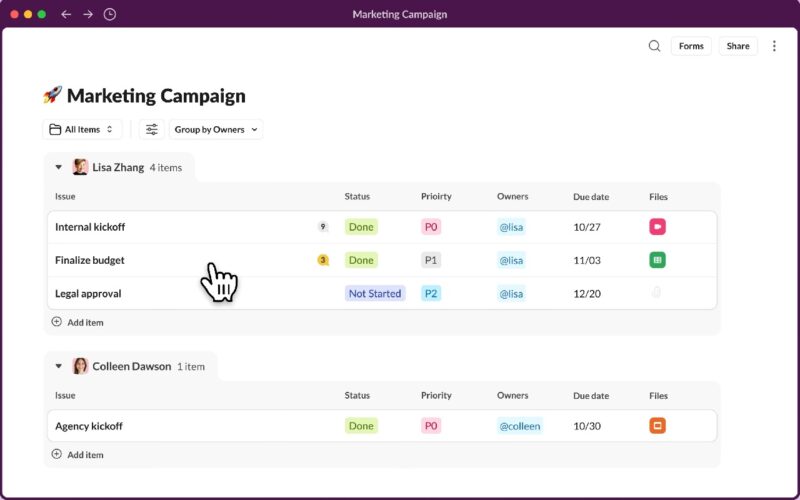Startups often face the dual challenge of expanding their reach while maintaining the quality that sets them apart. Growth is exciting, but it comes with the risk of losing the very essence that made the business successful in the first place.
Striking a balance between scaling operations and preserving quality requires strategic planning, intentional choices, and a deep commitment to the company’s core values.
The pressure to grow quickly can lead startups to compromise on key elements like customer service, product integrity, or team cohesion. However, thoughtful growth is not about racing to outdo competitors—it is about building a foundation that can sustain success over time.
Table of Contents
ToggleFocus on Quality While Scaling Operations
Balancing quality and growth is one of the most pressing challenges for startups. Rapid expansion often tempts companies to cut corners, but this can erode trust, damage reputation, and derail long-term success. Focusing on quality while scaling operations requires structured approaches, clear processes, and innovative tools.
Why Quality Matters as You Scale

Quality impacts every aspect of a business. From the reliability of products to customer satisfaction, maintaining high standards ensures that your brand remains competitive.
Compromising quality during growth can lead to:
- Loss of customer loyalty
- Increased operational inefficiencies
- Damage to your brand reputation
Tools to Maintain Quality at Scale

- Project Management Software: Platforms like Trello, Asana, or Monday.com help organize tasks, assign responsibilities, and track progress. This ensures clarity across growing teams.
- Customer Feedback Platforms: Tools like Qualtrics or Zendesk help collect and analyze customer insights to address pain points quickly.
- Automated Quality Assurance: Testing tools such as TestRail or BrowserStack ensure that product updates and scaling initiatives meet established quality benchmarks.
- AI Tools for Consistency: AI-based tools for content review or customer support management streamline tasks without sacrificing quality. These tools improve efficiency but must be used cautiously. Abuse of AI-generated content can harm credibility—AI Content Detector can help maintain transparency.
Examples of Startups That Scaled Without Compromising Quality

- Slack: Focused on maintaining product simplicity and usability while growing its user base. Regular user feedback loops and continuous testing ensured consistent quality.
- Warby Parker: Expanded by offering affordable, high-quality eyewear while investing in customer service and ethical practices.
- Patagonia: Known for sustainable growth strategies, this company scaled operations while prioritizing product quality and environmental responsibility.
Create Processes to Manage Quality
- Standardize Operations: Create guidelines for product development, customer interactions, and team communication.
- Conduct Regular Audits: Perform quality checks on production lines, service offerings, or customer engagement strategies.
- Empower Your Team: Train employees to uphold quality standards and encourage accountability.
Tools for Scaling Without Compromising Quality
| Category | Tool | Purpose |
| Project Management | Trello, Asana, Monday.com | Task tracking and team collaboration |
| Customer Feedback | Qualtrics, Zendesk | Collecting and analyzing user feedback |
| Quality Assurance | TestRail, BrowserStack | Testing and maintaining product standards |
| AI-Assisted Tools | Grammarly, Freshworks | Ensuring consistency and streamlining workflows |
Build a Growth Plan Without Losing Your Core Values
Expanding a startup requires careful planning to ensure that growth aligns with the values that define your business. Scaling up often presents challenges that can tempt founders to compromise on their mission or core principles. A growth plan rooted in these values ensures that expansion strengthens rather than dilutes the foundation of your startup.
Why Core Values Matter During Growth
Core values shape the identity of a company and serve as a compass for decision-making. Businesses that stray from their values often struggle with:
- Misalignment between leadership and team members
- Decreased employee engagement
- Loss of trust from customers and stakeholders
Steps to Build a Values-Driven Growth Plan

1. Define and Document Your Values
Clarify the principles that guide your company. Document them in a way that is accessible to your team and stakeholders. Questions to ask:
- What makes your business unique?
- What principles guide your decision-making?
- How do your values translate into actions?
2. Set Scalable Goals
Break down your growth ambitions into specific, measurable objectives. Ensure these goals align with your values. Examples include:
- Expanding into markets that reflect your ethical standards
- Increasing revenue without compromising product integrity
- Building partnerships with like-minded organizations
3. Communicate Your Vision
Transparent communication helps your team and stakeholders understand the direction of growth. Share how expansion will benefit them while upholding your values.
Choose Smarter Strategies to Achieve Sustainable Success
Scaling a startup successfully requires selecting strategies that not only drive growth but also ensure long-term stability. The right approaches help your business adapt to new challenges while remaining efficient and customer-focused.
Sustainable success means growing with intention, creating a strong foundation that can weather market changes and competition.
Innovative Strategies to Drive Smart Growth
1. Leverage Data-Driven Decision-Making
Data offers actionable insights into customer behavior, market opportunities, and operational efficiency.
- Use tools like Google Analytics to track website performance and audience demographics.
- Implement customer relationship management (CRM) platforms like Salesforce to understand client needs and preferences.
- Analyze financial data with software like QuickBooks or Xero to identify cost-saving opportunities.
2. Invest in Scalable Technology
Technology forms the backbone of efficient scaling. Choose solutions that grow alongside your business.
- Cloud-based platforms like AWS or Microsoft Azure provide scalable infrastructure for online services.
- E-commerce solutions such as Shopify or WooCommerce support seamless online sales expansion.
- AI-driven tools like HubSpot or Jasper can assist with marketing, customer service, and content creation while saving time.
3. Build Strategic Partnerships
Collaborating with other businesses can accelerate growth.
- Partner with companies that complement your services to expand offerings.
- Collaborate with local suppliers to maintain quality while scaling operations.
- Explore co-marketing opportunities to reach new audiences effectively.
Real-World Applications of Smarter Strategies
| Strategy | Example in Action |
| Data-Driven Decisions | Netflix uses viewer data to create tailored recommendations. |
| Scalable Technology | Airbnb leverages AWS for seamless hosting scalability. |
| Strategic Partnerships | Starbucks and Spotify collaborated for in-store playlists. |
Develop a Customer-Centric Approach for Sustainable Growth

A customer-centric approach ensures that growth strategies align with the needs and expectations of the people who drive your business.
Strategies for Building a Customer-Centric Business
- Collect and Act on Customer Feedback
Use tools like SurveyMonkey or Google Forms to gather insights. Analyze the feedback to make meaningful changes that enhance the customer experience. - Personalize Interactions
Implement CRM platforms like HubSpot or Salesforce to tailor communications and offerings based on individual preferences and history. - Train Your Team to Prioritize Customers
Conduct workshops or training programs that emphasize active listening, empathy, and problem-solving. - Provide Proactive Support
Offer 24/7 customer service using live chat tools like Zendesk or AI-powered assistants. Proactively address common issues to build trust.
FAQs
How Can Startups Measure the Success of Their Growth Strategies?
Startups can track success through key performance indicators (KPIs) such as customer retention rates, revenue growth, profit margins, and operational efficiency. Tools like Tableau or Google Data Studio can help visualize data for better decision-making.
What Role Does Employee Engagement Play in Scaling a Startup?
Employee engagement directly impacts productivity, innovation, and quality. Engaged employees are more likely to contribute ideas, uphold company values, and maintain high standards during periods of rapid growth.
How Can Startups Mitigate Risks During Expansion?
Startups can reduce risks by conducting thorough market research, diversifying revenue streams, and creating contingency plans. Tools like SWOT analysis or scenario planning software can help identify potential challenges before scaling.
Why Is Sustainable Growth Better Than Rapid Growth?
Sustainable growth allows startups to build a strong foundation without overextending resources or compromising quality. It ensures long-term success by focusing on steady progress rather than quick wins that may lead to burnout or failure.
How Can Startups Foster Innovation While Scaling?
Startups can encourage innovation by creating an open environment for idea sharing, investing in R&D, and using tools like brainstorming software (e.g., Miro). Rewarding creativity and staying agile helps businesses adapt to changes and drive continuous improvement.
The Bottom Line
Scaling a startup demands focus on what truly drives success: delivering value to customers, staying true to core prnciples, and making decisions grounded in real data and sustainable practices.
The key is balancing growth with consistent quality, ensuring the business remains resilient and prepared for long-term success without sacrificing the trust and reputation it has built.










